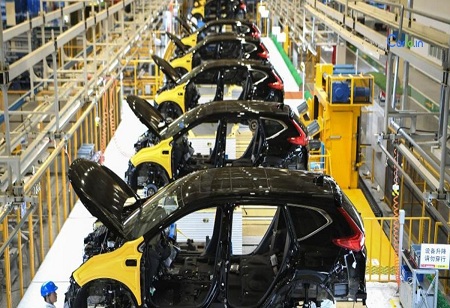According to a report by EY India, the Indian automotive industry needs to evaluate its supply chain architecture from the ground up to assess its vulnerabilities to external factors such as the Covid-19 pandemic. The report titled ‘non-linear automotive supply chain — Covid-19 and beyond’, has found that the impact has been deep rooted.
The mid- and long-term impacts of Covid -19 have been evaluated by the automotive supply chain and manufacturing segment. These include procurement planning and supplier management, integrated sales and operations planning, manufacturing, logistics and distribution.
“The Indian automotive supplier base is currently not too diversified for majority of components. This was to drive volume-based price efficiencies.
However, this strategy is highly exposed to risks arising from disruptions in geographies that supply key auto components,” said Vinay Raghunath, Partner and Automotive Sector Leader, EY India.
Throwing light on the impact of Covid-19 on the Indian automotive supply chain and its inherent inefficiencies, the report outlines focus areas which could help its performance in the interim and beyond.
The Indian automotive industry imports $17.5 billion worth of auto components. Before the pandemic, to enforce ‘Make in India’, the government in the Union Budget 2020-21 hiked customs duty on raw materials and inputs imported by domestic manufacturers by 2.5-5 percent, and completely built units (CBUs) from 30-40 percent for commercial vehicles other than electric.
Traditionally, logistics costs in India have been comparatively higher than neighboring nations. The key challenge for the Indian automotive supply chain would be to manage the cost escalation year-on-year, driven by rising fuel costs. OEMs, therefore, need to explore the ability of key suppliers to fulfill orders from alternative locations.
According to the report, the critical first step would be to identify a company’s key direct suppliers and dependencies — both in the supply and the demand side. It requires an in-depth mapping exercise to understand its ability to meet supply requirements and responses during potential risk scenarios. This will enable the creation of a flexible ecosystem comprising suppliers and distribution partners.
